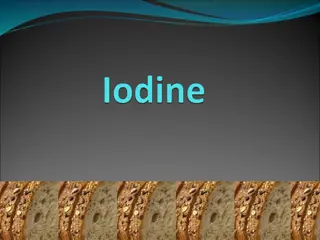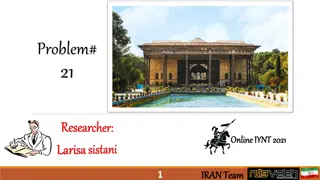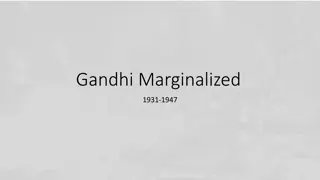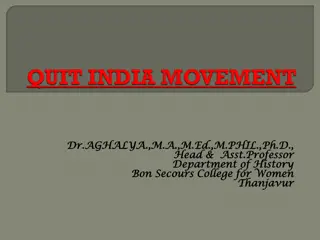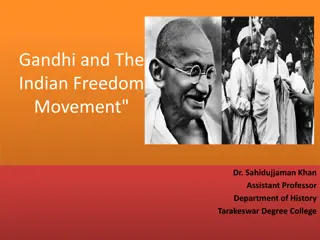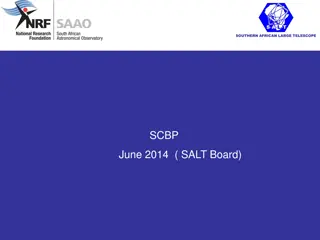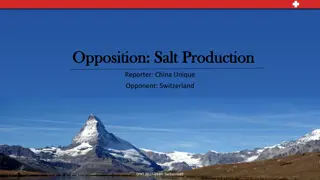The Inspiring Story of Gandhi's 1930 Salt March in India
Gandhi's 1930 Salt March in India was a powerful act of nonviolent resistance against British colonial rule. By defying the salt tax, Gandhi united millions of Indians and inspired a wave of civil disobedience that ultimately led to India's independence. This iconic event not only symbolized India's struggle for freedom but also served as a significant milestone in the global fight against colonialism.
Download Presentation

Please find below an Image/Link to download the presentation.
The content on the website is provided AS IS for your information and personal use only. It may not be sold, licensed, or shared on other websites without obtaining consent from the author. Download presentation by click this link. If you encounter any issues during the download, it is possible that the publisher has removed the file from their server.
E N D
Presentation Transcript
WAAS Meditation on Peace Dubrovnik 2017 Eladio Valencia November 2017
Agenda The 1930 Salt March The Disruptive Experience 2
The 1930 Salt March India was never a unified nation in the past. At the time it attained independence in 1947, it still included 500 princely states under Britian with a shared culture and diverse ethnic, religious and linguistic traditions. 3
The 1930 Salt March Gandhi s goal was to gain freedom for India without violence. He understood that unification of a country is not just by wining a war, it requires forging a common sense of identity and emotional solidarity between its diverse people 4
The 1930 Salt March Gandhi came up with a creative initiative to create common identity and unite India. He did it using the symbol of salt to challenge the authority of the British. The British had imposed heavy tax on salt, a staple food. Gandhi called on the Indian people to make salt in violation of tax law. 5
The 1930 Salt March It was a brilliant original strategy with no apparent strategic value. The British understood that defiance of British authority by millions of Indians would be a powerful demonstration of the helplessness of foreigners to subdue and control an unwilling population. 6
The 1930 Salt March When Gandhi announced his plan to start making salt with just 80 of his followers, even his lieutenants like Nehru and Patel never believed that it would be of any significance. However, millions of people marched to the country s 4,000 mile coastline to make their own salt. 7
The 1930 Salt March 1. This launched the massive act of symbolic civil disobedience that led to the overturning of the colonial government. It not only demonstrated their power, but also created a sense of identity among Indians. 2. The non-violent defeat of colonialism in India led within a few years to the collapse of colonial empires all over the world. A creative symbolic act of emotional solidarity defeated colonialism 8











